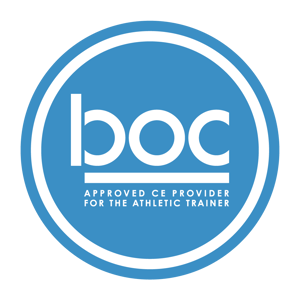Osteoporosis: Therapeutic Management of Bone Health

Description
This course provides an in-depth look at osteoporosis and the Rehab professional management of bone health. The course reviews bone anatomy and physiology; looks at classifications, causes, and effects of low bone density; summarizes medical management and medications; and provides a detailed discussion of the therapist’s role in managing osteoporosis and related conditions. The material presented here is designed specifically for use with patients who have osteoporosis, osteopenia, or low bone density, or who are at risk of developing one of these, regardless of their age or comorbidities. The course presents targeted, safe exercises for improving posture, flexibility, strength, balance, and bone health with adults. This course will be immediately useful in clinical practice to rehab providers, particularly those who work with adults age 50 or over.


Physicourses is an AOTA Approved Provider of professional development. Course approval ID# 6295. This distance learning-independent course is offered at 0.7 CEUs Intermediate Level, OT Service Delivery, Foundational Knowledge. AOTA does not endorse specific course content, products, or clinical procedures.
Available Course Credits
| Alaska State PT & OT Board | 7.00 | ||
 |
AOTA | 7.00 | |
| Arizona State Board of Physical Therapy | 7.00 | ||
| Arkansas State Board of Physcial Thearpy | 7.00 | ||
 |
BOC | 7.00 | |
| California Physical Therapy Board | 7.00 | ||
| Colorado Division of Professions and Occupations | 7.00 | ||
| District Of Columbia Department of Health | 7.00 | ||
| FPTA | 7.00 | ||
| Indiana Physical Therapy Board | 7.00 | ||
| Iowa Board of Physical Therapy and Occupational Therapy | 7.00 | ||
| Kansas State Board of Healing Arts | 7.00 | ||
| Kentucky Board of Physical Therapy | 7.00 | ||
| Louisiana Physical Therapy Board | 7.00 | ||
| Maine Board of Physical Therapy | 7.00 | ||
| Maryland Board of Physical Therapy Examiners | 0.70 | ||
| Massachusetts Board of Allied Health Professionals | 7.00 | ||
| Michigan Board of Physical Therapy | 7.00 | ||
| Mississippi State Board of Physical Therapy | 7.00 | ||
| Nebraska Department of Health and Human Services | 7.00 | ||
| New Mexico Physical Therapy Board | 7.00 | ||
| New York State Education Department | 7.00 | ||
| North Carolina Board of Physical Therapy Examiners | 7.00 | ||
| North Dakota Board of Physical Therapy | 7.00 | ||
| Office of Professional Regulation, Vermont Secretary of State | 7.00 | ||
| Oklahoma Board of Medical Licensure and Supervision - Physical Therapy | 7.00 | ||
| Oregon Board of Physical Therapy | 7.00 | ||
| Pennsylvania Bureau of Professional and Occupational Affairs - Physical Therapy | 7.00 | ||
| Physical Therapy Governing Board New Hampshire | 7.00 | ||
| South Carolina Board of Physical Therapy | 7.00 | ||
| South Dakota Physical Therapy License Board | 7.00 | ||
| State of Alabama Board of Physical Therapy | 7.00 | ||
| Tennessee Board of Physical Therapy | 7.00 | ||
| Texas Physical Therapy Association | 7.00 | ||
| Utah Physical Therapy Licensing Board | 7.00 | ||
| Virginia Board of Physical Therapy | 7.00 | ||
| Washington State Board of Physical Therapy | 7.00 | ||
| West Virginia Board of Physical Therapy | 7.00 | ||
| Wisconsin Physical Therapy License Board | 7.00 | ||
| Wyoming Board of Physical Therapy | 7.00 |
Course Content
| 222a Osteoporosis: Therapeutic Management of Bone Health | Module | ||
| Course Evaluation | Module |
Sarah R.Stillings, MA, PT, MPT, CHT
Sarah R. (Sally) Stillings is a PT and Certified Hand Therapist in Texas. She received her physical therapy degree from the University of North Carolina at Chapel Hill. Prior to becoming a therapist, Sally taught university-level writing courses and was assistant editor of The Journal of Craniomandibular Practice. In her extensive career as a PT, she has held a variety of clinical, teaching, administrative, and business roles, including general PT practitioner, upper extremity specialist, clinic manager, hand therapy clinic coordinator, continuing education (CE) instructor, and CE course administrator. She has also served as Executive Director of the Kellermann Foundation, a U.S. nonprofit organization supporting healthcare and community development in Uganda, East Africa. Her work now focuses on creating evidence-based CE materials for rehab professionals. Sally is a lifelong runner who celebrates all those who cover the ground.

222 Osteoporosis: Therapeutic Management of Bone Health
—Course Objectives
After completing this continuing education course, the learner will be able to:
1. Recall basic human bone physiology and changes in bone associated with aging
2. Differentiate the definitions of osteopenia and osteoporosis and recall their classifications
3. Identify the demographics of osteoporosis in the United States
4.Recall the basics of testing for osteoporosis, its parameters, and its drawbacks
5. Identify the physiological effects of decreased bone density
6.Recognize the morbidity and mortality associated with low-trauma fractures
7. Recall the postural changes associated with osteoporosis
8.List low-trauma fracture risk factors
9. Identify the main medical and pharmacological interventions for osteoporosis
10. Recall how exercise affects bone health
11. List contraindications and precautions to exercise prescription
12. Select appropriate elements of the evaluation and assessment of a patient with osteoporosis, using case studies
13. Identify how to apply knowledge and create a plan of care for an osteoporosis patient in a case study in order to maximize function and participation in daily activities
14. Choose specific exercises for beginner-level osteoporosis patients—including stretching, balance, strengthening, and aerobic activities—and demonstrate the ability to explain and instruct them
222 Osteoporosis: Therapeutic Management of Bone Health
Table of Contents
HOUR 1
Course Instructions 2
About the Author/ Course Description 3
Course Objectives 4
Table of Contents 5
Introduction 7
Chapter 1: Bone Anatomy and Physiology 8 Definitions 8
Bone Growth, Function, and Structure 10
Bone Breakdown and Repair Process 13
Case Study One 15
Changes in Bone with Aging 15
HOUR 2
Chapter 2: Osteopenia and Osteoporosis 17
Definitions 17
Risk Factors 17
Case Study Two 20
Types of Osteoporosis 20
Testing for Osteoporosis 23
Classifications 24
Demographics 26
HOUR 3
Chapter 3: Effects of Osteoporosis 30 Bone Weakness 30
Low-Trauma Fractures 31
Vertebral Compression Fractures 32
Hip Fractures 34
Distal Radius Fractures 35
Postural Changes 38
Morbidity and Mortality 39
Case Study Three 43
HOUR 4
Chapter 4: Medical Management of Osteoporosis 44 Assessing Fracture Risk 44
Universal Recommendations 46
Pharmacologic Intervention for Improving Bone Health 48
Case Study Four 51
Post-Surgical Considerations 52
Chapter 5: Therapy Management of Osteoporosis 54 How Exercise Affects Bone Health
Bone Mass and Bone Quality
Other Parameters Improved by Exercise
HOUR 5
Contraindications and Precautions 57
Absolute Contraindications to Exercise Participation
Relative Contraindications or Precautions
Evaluating the Individual with Osteoporosis or Osteopenia
Medical History Review
Case Study Five 62
Examination
Assessment
Creating the Plan of Care 65
Patient Education
Understanding Bone Health
Fall Prevention
Benefits of Long-Term Exercise Participation
Following Physician’s Recommendations
Other Patient Education Topics
HOUR 6
Chapter 6: Exercise Programs for Osteoporosis and Osteopenia 71
Safety First: Exercises to Avoid
Function Follows Form: The Importance of Good Posture 75
Postural Awareness
Flexibility Exercises 77
Lower Extremity
Hip and Pelvis
Back, Neck, and Chest
Resistance Exercises 84
Core Strengthening
Core Exercises
Other Basic Strengthening Exercises
Aerobic Weight-Bearing Exercise 93
Patients Recovering from a Fracture
Patients with Low Risk of Fracture
Patients with Moderate Risk of Fracture
Patients with High Risk of Fracture
HOUR 7
Case Study Six 98
Balance Exercises
Other Exercise Options 101
Yoga
Pilates
Tai Chi and Qigong
Conclusion 109
Appendix A: Resources for Patients
Appendix B: Exercise Instructions
References
Examination
Evaluation
Customer Cancellation:
Customers may request cancellations of their enrollment or subscription in our digital or live educational services, subject to the terms outlined below. Cancellation requests must be made in writing, either through email or through our designated cancellation process.
Refund Policy:
Refunds will be provided according to the following guidelines: i) For cancellation requests made within 5 days of the initial enrollment or subscription, a full refund will be issued. Refunds will be issued using the same method of payment used for the original transaction, unless otherwise agreed upon in writing.
Provider Cancellation:
In the event Physicourses cancels your course, you will be issued a full refund or transfered to a course of equal or greater value.
Physicourses Conflict of Interest Disclosure Policy for Authors and Staff:
All persons in a position to control the content of any educational activity (authors or staff from Physicourses) are required to disclose to Physicourses any potentially biasing or potential conflict of interests in relationships of a financial, professional, or personal nature.
The intent of this disclosure is not to prevent authors or staff with commercial affiliations from planning an educational activity, or to prevent a Presenter with commercial affiliations from presenting, but rather to inform Physicourses of any potentially biasing relationships so that conflicts are resolved prior to the activity.
It is the policy of Physicourses to ensure balance, independence, objectivity and scientific rigor in all of its continuing education activities. All relevant conflicts of interest identified by the planner, presenter, or as determined by Physicourses will be disclosed to the audience verbally and in writing prior to the start of the presentation.
Definitions for Authors/Staff:
Relevant financial relationships are those relationships in which you benefit by receiving a salary, royalty, intellectual property rights, gift, speaking fee, consulting fee, honoraria, ownership interest (e.g., stocks, stock options, or other ownership interest, excluding diversified mutual funds), or other financial benefit. Financial relationships can also include “contracted research” where the institution gets the grant and manages the funds and you are the principal or named investigator on the grant.
Educational Level: Intermediate
Target Audience: PT, PTA, OT, OTA
Course Completion Requirements: Passing an online exam with 70% or greater will be required to earn continuing education credit
This course is approved for 0.8 CEUS. 8 contact hours
Physicourses is committed to ensuring accessibility to the most extensive audience possible. If you have any questions or special needs requests, please contact us at info@physicourses.com.